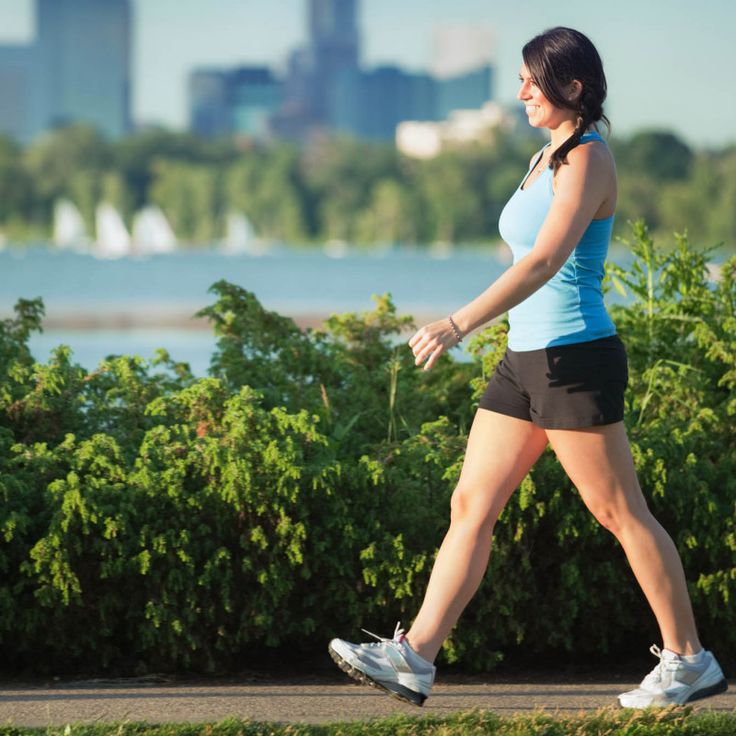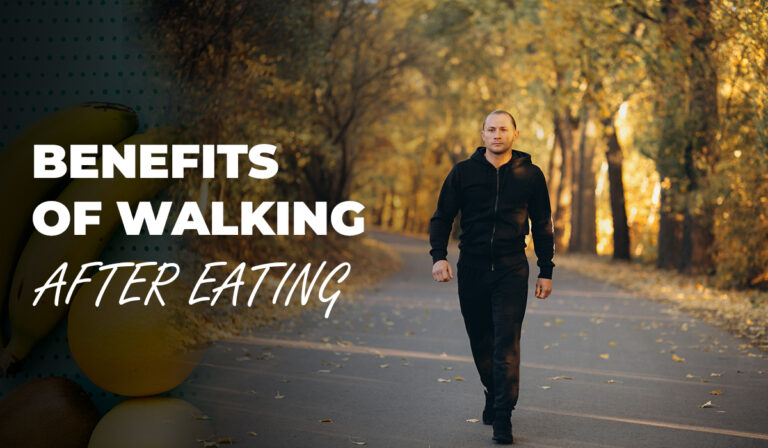Have you ever been advised to take a walk after eating? Well, it is one of the most effective ways to live a healthy lifestyle. In this article we will discuss the benefits of walking after eating.

Walking is one of the simplest and most effective forms of exercise. It is often advised to walk after meals to get numerous benefits. Post-meal walks are often referred to as digestive walks because they help improve digestion, stabilize blood sugar levels, and enhance overall well-being.
Why Walking After Eating is Beneficial
Walking after meals activates your body’s processes in a gentle, natural way. Here’s a look at how it can improve various aspects of your health.
1. Improves Digestion
Walking stimulates the digestive system by promoting the movement of food through your gastrointestinal tract.
- How It Helps: It encourages peristalsis (the wave-like muscle contractions in your digestive tract), reducing the risk of bloating, gas, and constipation.
- A 15 minute walk can significantly speed up the digestive process.
2. Stabilizes Blood Sugar Levels
A post-meal walk can help prevent sharp spikes and drops in blood sugar, making it particularly beneficial for individuals with diabetes or prediabetes.
- How It Works: Physical activity enhances insulin sensitivity and helps muscles absorb glucose more efficiently.
3. Aids in Weight Management
Walking after eating can support weight loss and maintenance by improving metabolism and calorie burn.
- Why It’s Effective: Moving after meals prevents fat storage by using the calories you just consumed as energy.
- It’s a low-intensity activity, making it sustainable for people of all fitness levels.
4. Reduces Acid Reflux and Heartburn
Gentle walking can alleviate symptoms of acid reflux and heartburn by keeping food from staying too long in the stomach.
- How: Walking helps gravity and movement work together to keep food moving downward through the digestive tract.
- Pro Tip: Avoid brisk walking, as it might aggravate reflux; stick to a relaxed pace.
5. Boosts Mental Health
Walking releases endorphins, which enhance mood and reduce stress.
- Post-Meal Benefits: It prevents the sluggish feeling often associated with heavy meals, keeping you more alert and focused.
- Extra Perk: If you walk outdoors, the exposure to fresh air and nature adds to the calming effect.
6. Promotes Cardiovascular Health
Regular post-meal walks can improve heart health by lowering blood pressure and cholesterol levels.
- How It Helps: Gentle activity immediately after eating prevents fat buildup in the blood vessels, reducing the risk of heart disease.
7. Enhances Sleep Quality
Walking after dinner, often called a “digestive stroll,” can promote better sleep.
- Why It Works: It relaxes the body and mind, helping you transition smoothly into your nighttime routine.
- Pro Tip: Keep it light and avoid intense exercise close to bedtime to prevent overstimulation.
How to Incorporate Walking After Eating
Incorporating walking after meals is not so difficult. This is a healthy habit that you are going to enjoy with time. Moreover when you will see its benefits you would want to continue with this habit. Here are some practical tips to make post-meal walking a consistent habit:
- Start Small: Do not make it a big deal. Walking should not be a chore but a habit that you would want to continue. For that you should start small. Begin with 5–10 minutes of walking after meals and gradually increase the duration.
- Choose the Right Time: The time you chose to walk would make a difference in keeping you consistent. Make sure you walk after fishing your meal especially at night when you have wrapped all other chores at home. Aim to start walking 10–15 minutes after finishing your meal to allow initial digestion to begin.
- Keep It Gentle: You have to enjoy the walk. Don’t focus on a fast-paced walk, especially after your meals. A moderate pace is ideal; avoid running or brisk walking immediately after eating.
- Plan Your Route: For motivation to be consistent with your habit, it will help you if you decide the route first. You can plan different routes every day or week to keep up with walking after meals. Make sure to opt for a quiet, safe path or simply walk around your home or workplace.
- Stay Consistent: Staying consistent is the key to seeing the benefits of walking. Aim to walk after at least one meal daily for noticeable benefits.
- Engage a Companion: If you want to make the most out of walking and feel like you should not be doing this alone, then you can engage a companion. Walking after meals is also an effective way to encourage family fitness. Walking with a friend or family member can make the activity more enjoyable and motivate you to stay consistent.
When to Avoid Walking After Eating
There are times when you would need to avoid walking after eating. Though walking after meals is generally beneficial, here are some situations when it won’t be ideal”
- Heavy Meals: Do not walk right after consuming a heavy meal. Wait at least 30 minutes before walking if you’ve had a particularly large meal.
- Intense Physical Activity: Do not engage in any intense physical activity right after consuming your meal. This is not an optimal thing to do because it can divert blood flow away from digestion.
- Health Conditions: If you have any concerning health issues then make sure you take up walking as an activity only after consultation from a professional healthcare advisor.
Frequently Asked Questions
Is it good to take a walk after eating?
Ans. Yes, it is good to take a walk after eating as it has multiple benefits, one of which is improving digestive health. It also helps to regulate blood sugar level and helps to maintain your weight as well given that you are eating healthy food.
Does walking after eating reduce belly fat?
Ans. Yes, a brisk walk of 30 minutes can help you reduce weight. Make sure you take a walk of 30 minutes after consuming your meal. Wait for some time and then start walking.
What is the best time to walk?
Ans. The best time to take a walk is in the evening or even in the morning. In the evening it will help your body to relax after a day of work. It will stimulate your body and relax your nerves which will help you to have a quality sleep. The morning walk helps you to get sun exposure which is good for your health. It also helps to connect you with nature.




